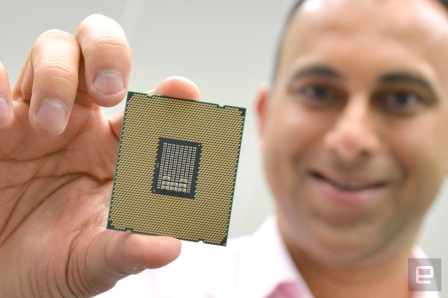Roadmap says transistors will stop shrinking in 5 years
Whether or not Moore’s Law on complexity has always held true, you’ve had one constant in the semiconductor world: chip makers would always find a way to shrink transistors and create more powerful chips without increasing size or power consumption. However, even that one hint of predictability might soon disappear. The Semiconductor Industry Association (which includes the likes of IBM and Intel) has published a roadmap which expects transistors to stop shrinking after 2021. Simply speaking, it might not be financial practical to keep reducing transistor sizes — companies might not recoup the costs. Instead, they may focus on 3D chips an other technologies that make better use of available space.
There is some evidence to support the prediction. The number of companies that can afford to compete in chip manufacturing is getting very small. Intel, GlobalFoundries (AMD’s former manufacturing wing), Samsung and TSMC are the only big players left, and there’s no guarantee that all of them will stick around. Intel’s slower development pace is largely a reflection of how difficult it is to shrink transistors without introducing problems like excessive power leaks.
This doesn’t mean that Moore’s Law will be dead in 5 years. The use of 3D and other tricks may continue to double the complexity of chips for a while yet. And it’s important to stress that this is a roadmap, not a guarantee. How many times have pundits predicted the end of progress in chip design, only to be proven wrong as a discovery keeps hope alive for a while longer? The biggest concern is that semiconductor giants may have to change how they increase the complexity and power of their products, not that they’ll hit a wall.
(45)














